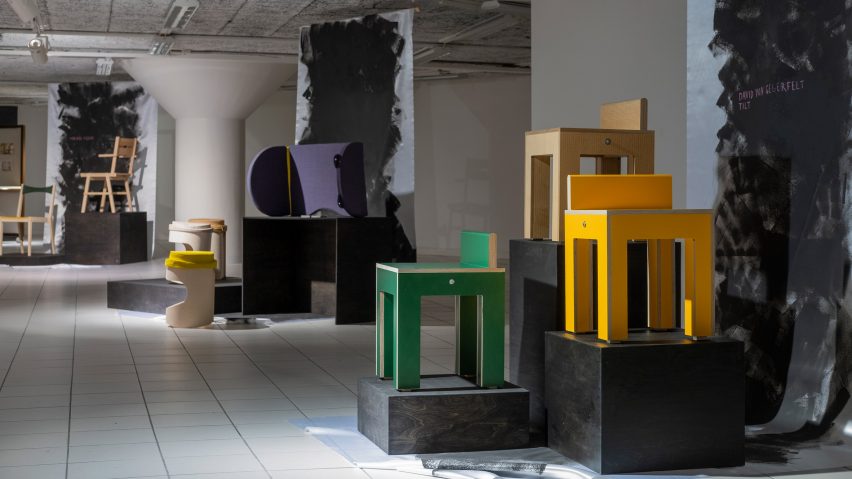
"The old way of producing a physical fair is gone" says Stockholm furniture fair organiser
Design fairs will have to radically change as brands switch to digital marketing channels, according to Sanna Gebeyehu of Stockholm Furniture & Light Fair.
"Really big fairs will perhaps not exist in the long run," said Gebeyehu, who is product and concept owner at Stockholmsmässan, which organises both the annual fair and Stockholm Design Week.
"It's maybe going to be smaller physical events, working hand in hand with the digital," she told Dezeen.
Stockholm Design Week took place in the Swedish capital last week even though the pandemic forced the cancellation of the furniture and lighting fair that usually anchors the event.
The design week took place in reduced form, with low-key showroom events held alongside a range of online activities.
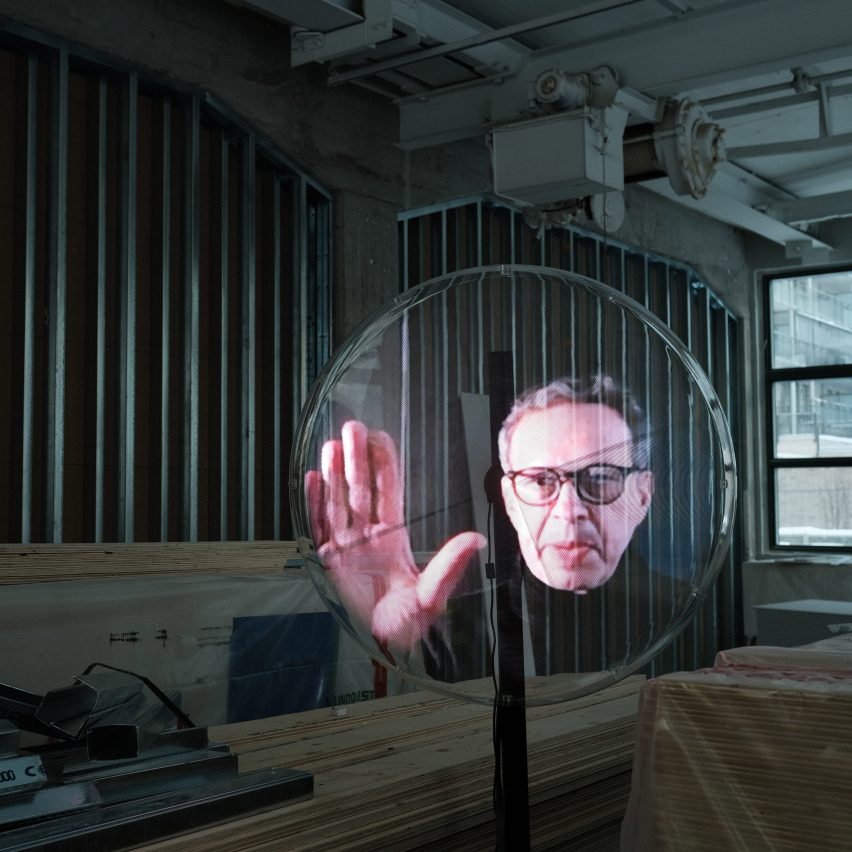
But several Swedish design brands explored ways of launching products without physical activities.
"We don't need a design week, we don't need a design fair," said Petrus Palmér, founder of Stockholm furniture brand Hem.
"We realised that we don't really need to pin our launches to a physical fair."
"We need to look more into the attention economy"
Stockholm Design Week was the first major design event to take place this year, with January's Maison&Objet and IMM Cologne fairs both cancelled due to the pandemic.
Milan's Salone del Mobile and the parallel Milan design week, which usually take place in April, have been postponed from April to September.
Gebeyehu said the pandemic will have a lasting impact on traditional trade shows, where thousands of visitors gather in exhibition halls to see the latest products.
"The old way of producing a physical fair is gone," she said. "Fairs need to be alive all year round in different ways. We need to look more into the attention economy, selling seconds, minutes, hours, not just square metres."
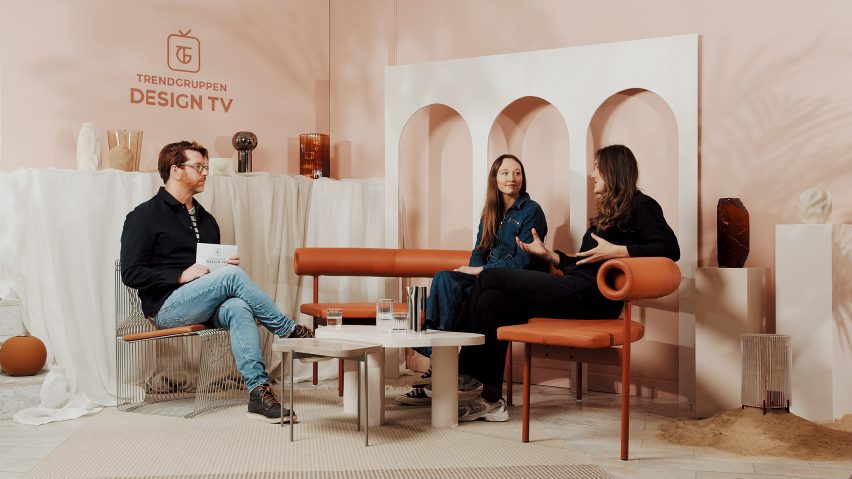
This year's pared-back Stockholm Design Week saw greatly reduced visitor numbers and none of the usual parties and festivities.
Instead, brands experimented with digital activities. British designer Tom Dixon visited the city via hologram while Stockholm PR company Trendgruppen showcased its roster of brands via an internet TV studio.
The annual Greenhouse showcase of young designers, usually one of the highlights of the furniture fair, took place online.
Furniture brand Hem held a digital launch for a new series of glass plates by designer Fabien Cappello. This followed the brand's successful digital-only launch of Faye Toogood's Puffy Lounge Chair last year.
"It was our most successful product launch to date," said Hem founder Petrus Palmér, who said the experience had shown him that brands can survive without design fairs.
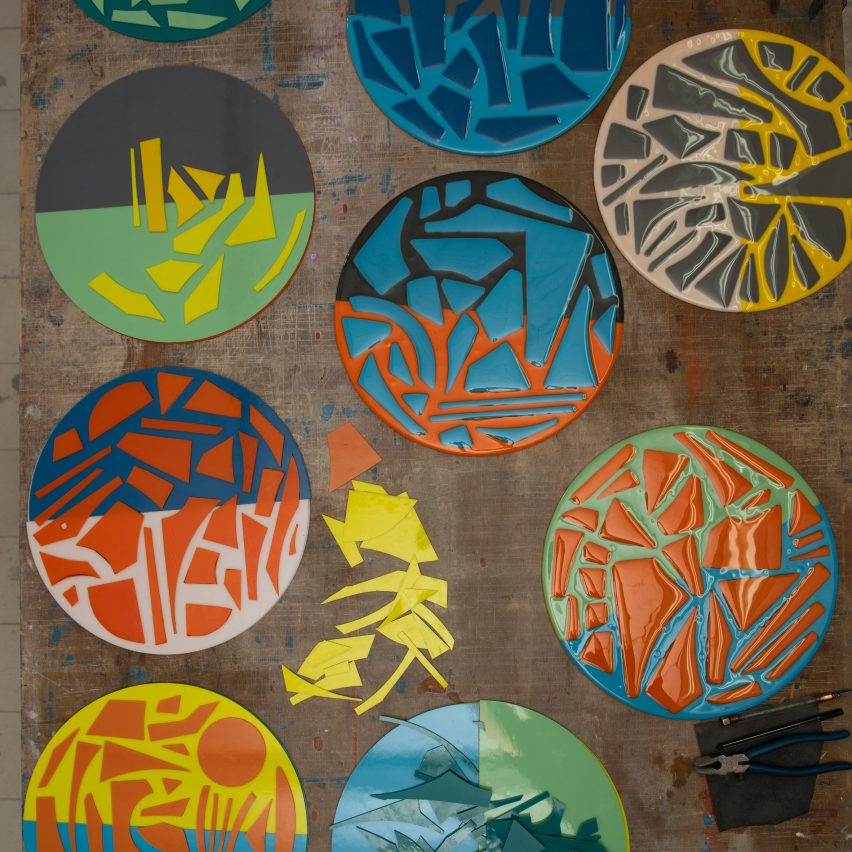
"We would have never done that unless we had to," he added. "We would have launched in Milan or Stockholm or London maybe. But since we couldn’t, we just went ahead and launched it [digitally] and the outcome is great.”
"It is a very different Stockholm Design Week this year"
Local designers said they missed the influx of overseas visitors and the social aspect of previous design weeks in the city.
"It is a very different Stockholm Design Week this year," said Sofia Lagerkvist and Anna Lindgren, founders of design studio Front.
"[Organisers] said it would be half digital, half physical. The truth is that physically there was almost nothing," remarked designer Luca Nichetto. "There were only a few things and it was very local. That, for me, is not really interesting."
"I can't say it feels like a design week," added Cristiano Pigazzini, co-founder of Note Design Studio. "There are some showrooms open, but I think in general are people staying home and just working as normal."
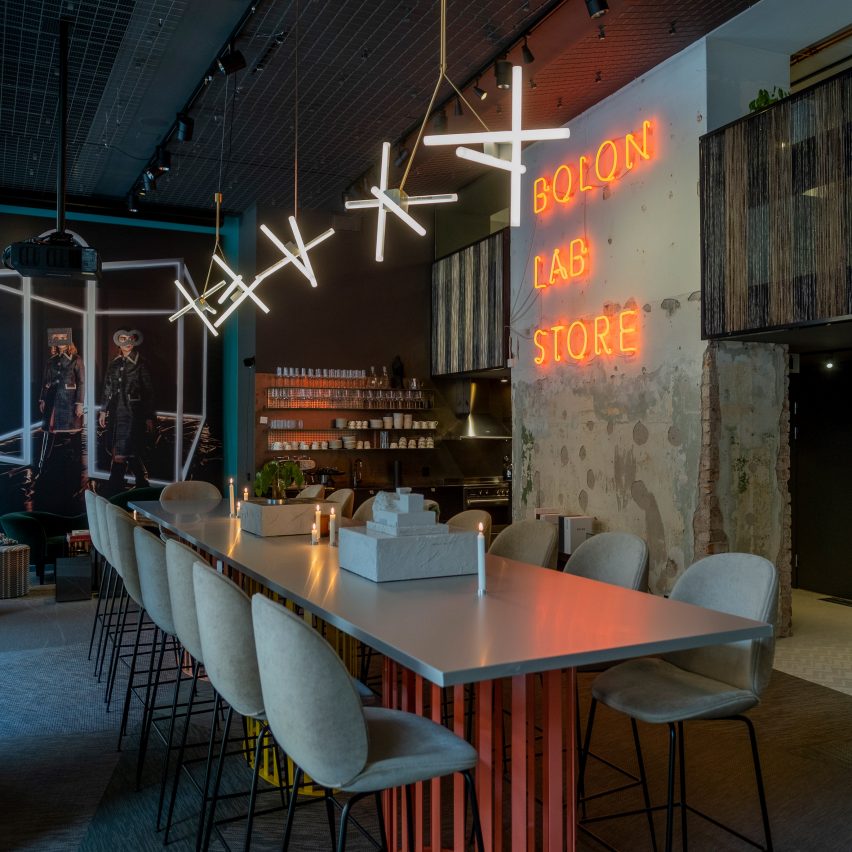
The decision to cancel the furniture fair was made in October when the resurgence of the coronavirus pandemic forced organisers to scrap plans for a pared-back event incorporating social-distancing rules.
Pigazzini said this reduced the opportunities to network and socialise, which is a key purpose of the design week.
"How many people go to visit a showroom to see a piece of furniture?" he said. "The real reason is to meet people. We need to meet, we need to socialise, we need to discuss."
Making the best of circumstances
Despite the sober mood, many designers have applauded the way that Stockholmsmässan handled the design week, given the difficult and unpredictable circumstances.
Bus tours were organised so that visitors could visit a series of physical events in a socially distanced way, while numerous designer and brand films were recorded in advance and broadcast via Stockholm Design Week's digital channels.
"I think they've done an amazing job when everything was decided only a month before Christmas," said designer Monica Förster.
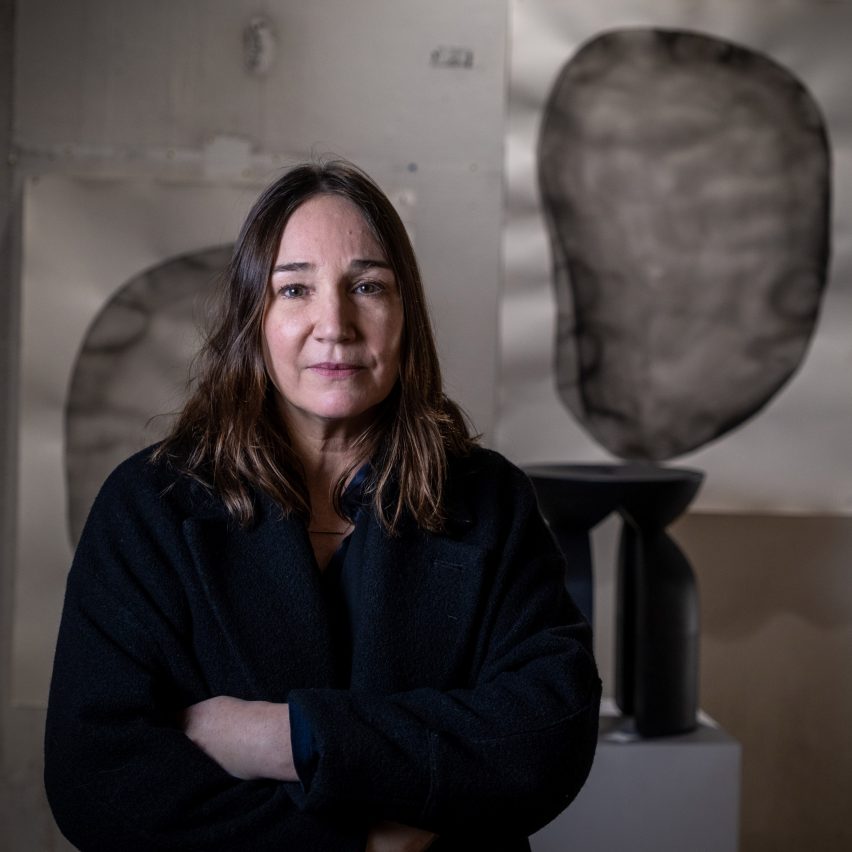
Förster hosted a digital exhibition, comprising a video tour of her studio. She also participated in Misschiefs Takeover, one of the few physical exhibitions that were large enough to make social distancing possible. This was touted by many as the highlight of the week.
Förster said that although it was "not a normal Stockholm Design Week", taking part in physical exhibitions was still worthwhile.
She said it was tense meeting people in person because everyone was worried about getting too close, but the experience was still positive.
"It is important to have a presence in the city," she said. "We are now forced into this digital format and it's a really good tool. But a hammer doesn't solve everything you do as a carpenter. You need different tools to achieve a goal."
However, Stockholm-based Scottish designer Nick Ross believed that a different approach would have been more impactful.
"Without the people, design weeks are rather pointless in my opinion," he told Dezeen. "I would rather see separate events and launches spread out across a longer period of time."
Although the majority of design fairs have been cancelled, several events have taken place with reduced, digital formats since the pandemic began. In Copenhagen, 3 Days of Design hosted a successful edition in September 2020, while London Design Festival held a low-key event in the same month.
Stockholm Design Week took place from 8 February - 12 February. See Dezeen Events Guide for an up-to-date list of architecture and design events taking place around the world.